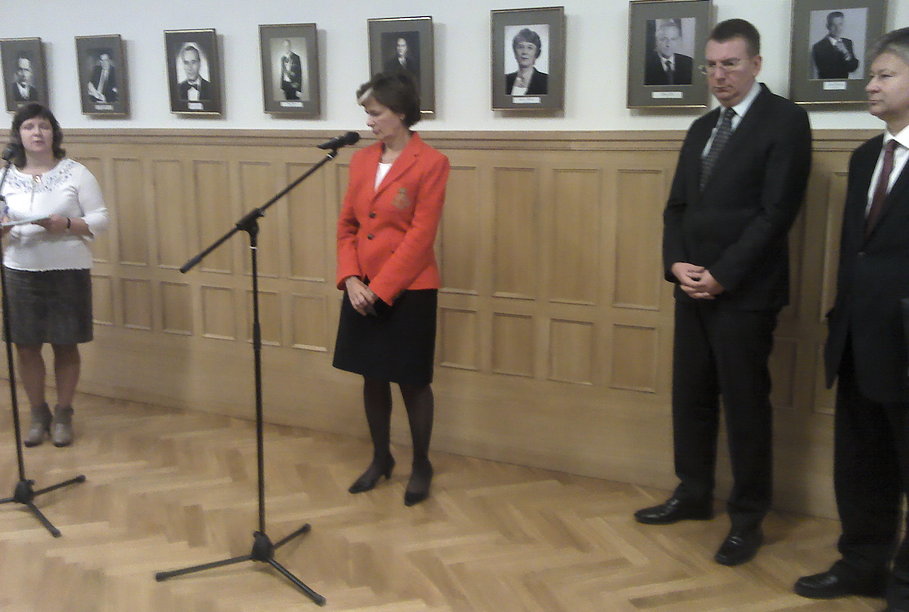Speaking after talks with Foreign Minister Edgars Rinkevics in Riga, Thors said she looked forward to discussing minority issues with a range of people during her visit and would encourage moves to reduce the number of Latvia's approximately 270,000 "non citizens" - mainly Soviet-era immigrants and their families who have chosen not to undergo existing naturalization processes to obtain Latvian citizenship.
"Successful integration is a two-way process," Thors said, "It is the country where the minority lives that is primarily responsible for their well-being."
"It's important to reach out to those under 18 who have not yet got Latvian citizenship under present procedures
"I'm looking forward to discussing in detail how language courses are provided to the minority and how they can improve their understanding of the Latvian language
"It's important there are enough courses and enough opportunities to pass the tests... so that the burden is not too high."
However in general Thors avoided saying what she thought of the situation of non-citizens and Latvia's attempts to reduce their number, instead urging reporters to refer to reports by the Council of Europe and United Nations.
"It's not up to the OSCE to do that," she said.
For his part, Rinkevics took the opportunity to remind the world about the plight of the Crimean Tartars.
Met with @OSCE HCMR @AstridThors on minorities in Latvia,need to protect Tatars & Ukrainians in Crimea,cooperation during our EU presidency
— Edgars Rinkēvičs (@edgarsrinkevics) October 16, 2014
"Unfortunately we see the situation of the Tartar minority in Crimea has drastically worsened... we very much hope the international community will not forget the annexation of Crimea and the fate of its minorities," Rinkevics said.
Astrid Thors assumed the post of the OSCE High Commissioner on National Minorities in August 2013. The previous visit by an OSCE High Commissioner on National Minorities took place in 2011, when Knut Wollebaek came for a visit.





























